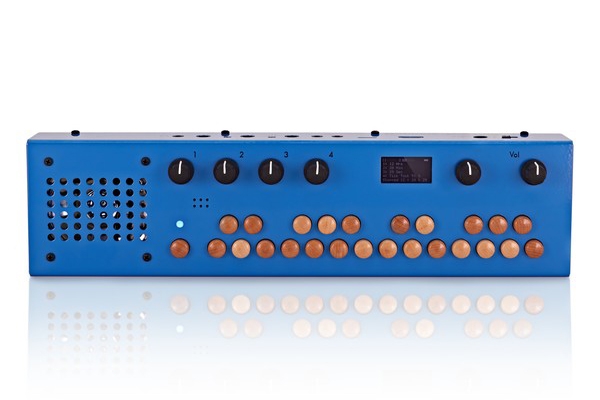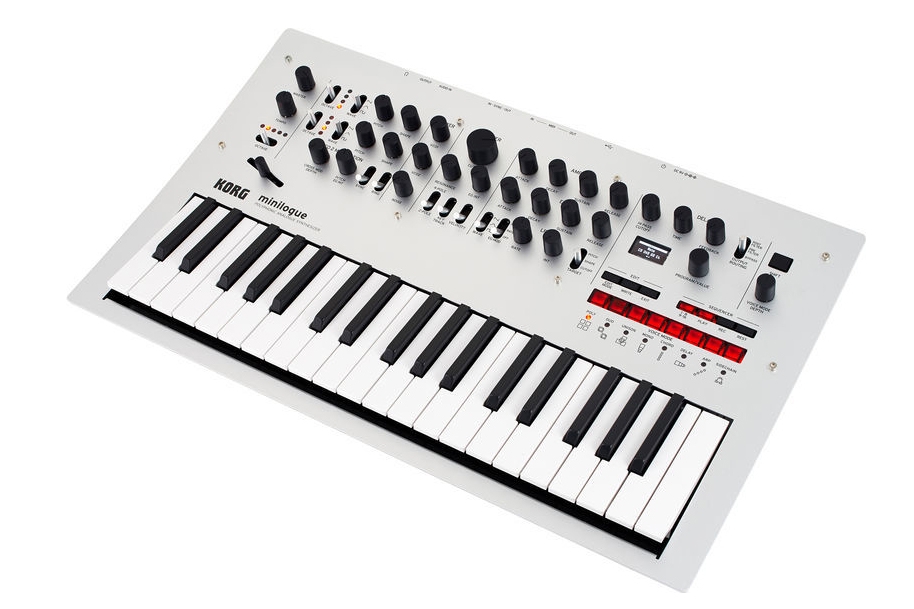 Tech
Tech
5 best beginner synths
Wanting to see what all the noise is about? check out these synths to get you started
Since the invention of the first commercial synthesiser in 1964 by Robert Moog, the synth has become an essential element in the production of electronic music. In the last 57 years, the synth has developed significantly from its original modular form — the instrument is now cheaper, smaller and more powerful than ever. With so many options available, choosing your first can be an overwhelming prospect for a synth novice.
Do you want to have a Keyboard? Do you need a MIDI? How do you know if the product is going to be straightforward to use? and how do you make sure you get good bang for your buck?.
Read this next: The 10 most influential synths of all time
With offerings from Korg, Behringer, Critter and more, here are some of the more versatile options to get started with.

Korg Microkorg
The Korg Microkorg is a solid synth to start creating music with due to its simplicity, but also you'll be joining ranks with some of the best to do it. The MicroKORG has been heard on music by Tame Impala, Justice, LCD Soundsystem, and more. The four main knobs are dedicated to controlling your attack, decay, sustain and release - meaning that you won’t be completely overwhelmed by an array of knobs with no indication of which does what. A downside to the synth is the outdated sound library, but the ability to both create sounds and import preset banks means that this little piece of kit can create big and atmospheric music.

Organelle M
Critter and Guitari’s Organelle M is an incredibly inventive and versatile synthesiser, with endless possibilities. With special FX and synth patches created by a bustling community, easy connection to your computer for patch creation, and a small form factor - there are a number of reasons why people are picking up the Organelle to create. Given its unconventional build and interface, with maple-wood buttons and a small display, patience may be required, but effort tends to pay off with such an interesting machine.
RRP £500 / Used: £400+
Behringer Deepmind 6
This 6-voice, polyphonic synthesiser is part of Behringer’s line-up. The company makes emulations of incredibly expensive synthesisers, allowing the power and sound of the originals to be available to musicians of all levels and at all budgets. With a solid build quality and a solid array of knobs and switches to get stuck into, you can get big, professional sounds despite it not hurting your pockets as badly as other synths might.

Korg Minilogue
The 4-voice Korg Minilogue is another synth that doesn’t take up too much space but can produce big sounds, and gives you many settings to play with and tweak. The Minilogue is capable of fat bass tones, as well as sparkling high-end synthesis, and an array of onboard patches - as well as the ability to add your own. There are endless possibilities through the large array of onboard effects and parameters to tweak, the Minilogue is a great place to start.

Yamaha Reface CS
The Yamaha Reface CS is part of Yamaha’s Reface series, creating smaller versions of iconic synths and pianos. The Reface CS is another brilliant starter synth at an affordable price point. The small form-factor of the synth doesn’t detract from its sonic potential, with sound creation at the fore of this synthesiser due to a lack of patches. The Reface CS can be plugged into a computer for access to user made synths, but there is no onboard storage on the unit, meaning patches have to be saved to a computer. Despite this, the Reface CS’s fast workflow is a great place to learn the basics of synthesis.
Tope Olufemi is Mixmag’s Digital Intern, follow them on Twitter



